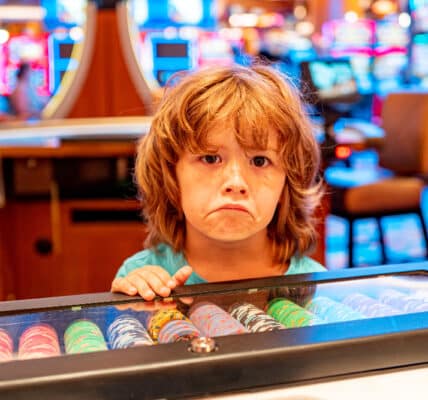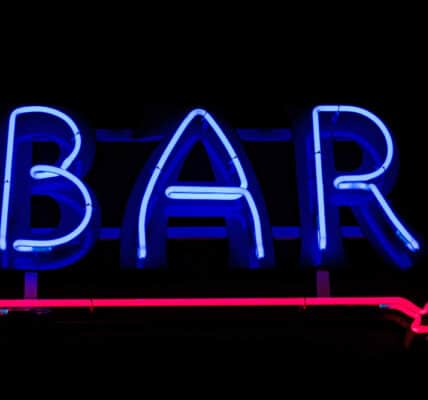Are There Any Effective Treatments for Gambling Disorder?

In a previous article on AddictionNews entitled, “A Perfect Storm of Gambling Addiction Is Headed for U.S.,” we described the forces unleashed by the combination of a Supreme Court decision legalizing state-sanctioned gambling, the availability of gambling using smartphones, and massive ad budgets for sports betting. The result is a tsunami of gambling disorders across the U.S.A.
What is being done to help those afflicted with gambling disorders? The trajectory for many problem gamblers is not good. First comes the loss of money, then often the loss of a job and the loss of a partner. Without recovery, problem gamblers face a difficult life of poverty, crime, incarceration, and nearly 15 times the normal rate of suicide.
The reason gambling can be so addictive to certain individuals is not completely clear. It is believed the thrill of the prospect of winning results in a dopamine blast that makes people feel happy, whereas large losses can lead to profound sadness. The desire to win back losses is so pronounced that problem gamblers will go on days-long binges until their credit runs out.
It is believed that the repeated abuse of the brain’s reward system leads to anxiety, disturbed sleep, and clouded judgment. The inability to restrain oneself from gambling despite a sincere desire to stop and knowledge of the harm it is causing is the definition of “addiction” and the reason gambling disorder is recognized as a form of mental illness in the Diagnostic and Statistical Manual of Mental Disorders, Fifth Edition (DSM-5).
It is clear the harm gambling disorder causes, and it is clear the number of people suffering from this disorder is ballooning just like the opioid crisis, but it is unclear the exact mechanism of addiction, and it is unclear what can be done to restore a normal life to those suffering from gambling disorders.
A team of researchers from the Fondazione Policlinico Universitario in Italy conducted a meta-study of the scientific literature on treatments for gambling disorder in 2020, and the results were pretty discouraging:
We found moderate evidence of effect for Cognitive Behavioral Therapy (CBT), but weaker evidence for pharmacotherapy and self-help interventions. Results suggested some efficacy for Motivational Interviewing (MI) in the short but not in the long term. It is likely that certain interventions might be more effective than others on specific features of gambling disorders. Further studies are needed to compare the efficacy and acceptability of individual and combined psychosocial and pharmacological interventions, to deliver patient-tailored treatments.
Another 2019 systematic review of the scientific literature regarding drug treatments for gambling disorder found that “opioid antagonists like naltrexone showed promise in the pharmacological treatment of gambling disorder.” That’s not much to go on. The authors add that psychotherapy in addition to pharmacology “may provide better rates of patient retention.” That weak endorsement is followed by a call for more research.
More promising are the results of a systematic review of randomized controlled trials on non-pharmacological treatments for gambling disorder from the University of Minho in Portugal. The studies examined the frequency of gambling, the amount of time spent, and the amount of money wagered.
The authors found “no gold standard” in terms of recommended treatments, although “every study obtained results in favour of the therapies, despite some of them not being statistically significant.” Stunningly, the relapse rate holds: “The improvements remained significant regardless of the duration of the follow-up, that varied from 3 months to 3 years.”
That’s pretty optimistic news. Cognitive behavioral therapy (CBT) has a “statistically significant” success rate that holds over time. But in-person CBT is expensive, time-consuming, and a barrier for many problem gamblers. Thus the authors make special note of internet-based therapies:
The internet-based approach is an innovative format of CBT as it can be offered as a way of enabling gamblers to overcome many of the barriers that prevent them from accessing traditional forms of treatment, as it is more versatile and convenient to the patient than the classical therapy.
We’ll have more to say tomorrow about internet-based approaches to gambling disorders. For now, it is encouraging to know that CBT works. Its availability needs to be greatly expanded to accommodate an expected flood of gambling disorders. And we need more funding devoted to studies of pharmacological, non-pharmacological, and internet-based therapies for gambling disorders.
Written by Steve O’Keefe. First published February 21, 2024.
Sources:
“Pharmacological and Psychosocial Treatment of Adults With Gambling Disorder: A Meta-Review,” Journal of Addiction Medicine, July/August 2020.
“Current pharmacotherapy for gambling disorder: a systematic review,” Expert Opinion on Pharmacotherapy, January 2020.
“Non-pharmacological treatment of gambling disorder: a systematic review of randomized controlled trials,” BMC Psychiatry, February 2021.
“Gambling Disorder,” Nature Reviews Disease Primers, July 2019.
“‘A Ticking Time Bomb’: Gambling Addiction Is at an All-Time High (and It’s About to Get Worse),” Money, February 2023.
Image Copyright: vectorfusionart.





2 COMMENTS